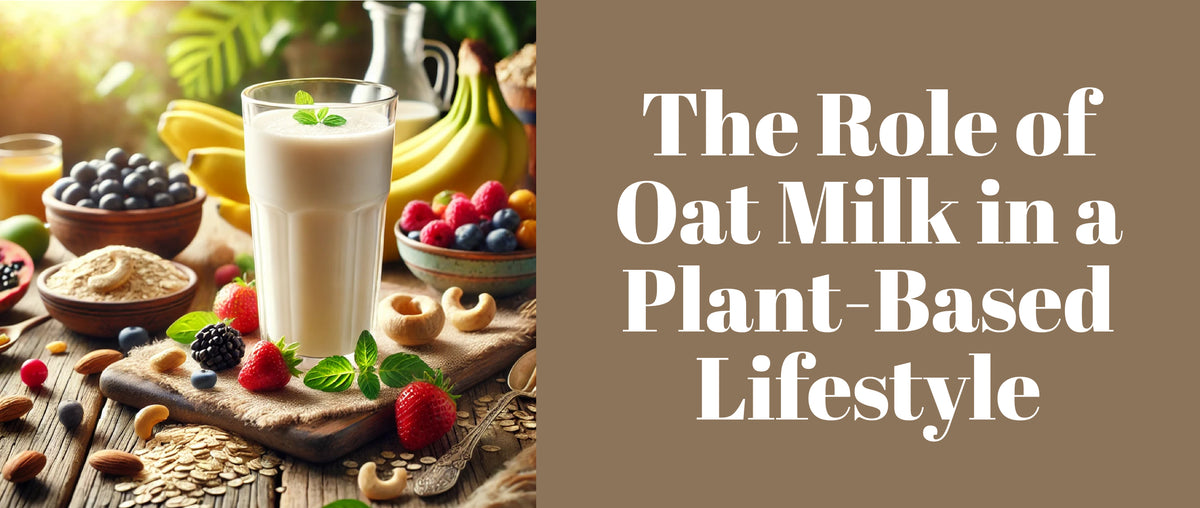The Role of Oat Milk in a Plant-Based Lifestyle
Oat Milk has rapidly become one of the most popular Vegan products on the market, especially for those seeking a dairy-free alternative that offers both flavor and nutrition. With its creamy texture and mild taste, oat milk stands out among plant based milks and provides a versatile option for everything from morning coffee to a healthy smoothie recipe. A growing number of people embracing a plant based lifestyle see oat milk as a sustainable, eco-friendly choice that aligns with their values of Healthy Living and environmental consciousness.
Unlike almond or coconut milk, oat milk is often praised for its higher fiber content and heart-healthy benefits. In recent years, it has also found its way into various culinary applications, such as vegan versions of mozzarella cheese block or Parmesan cheese. The rising popularity of vegan cheese options has fueled demand for oat milk as a common ingredient, further solidifying its place in the plant-based community.
Key Takeaways
- Nutrient-Rich: Oat milk provides essential nutrients like B vitamins, calcium, and iron, which are crucial for Healthy Living and healthy weight loss.
- Eco-Friendly: It has a lower environmental impact compared to dairy milk and other plant-based alternatives.
- Versatile for Vegan Recipes: Oat milk is perfect for vegan cheese, fat-free butter, and even in baking recipes, making it a great addition to a Healthy Lifestyle.
Nutritional Profile of Oat Milk
Understanding the nutritional profile of oat milk is essential for anyone who wants to integrate it into a plant based lifestyle. Oat milk not only provides a natural source of carbohydrates but also delivers dietary fiber and essential vitamins that support liver health, Healthy Living, and low-calorie nutrition.
Macronutrients in Oat Milk
One of the defining characteristics of oat milk is its balanced macronutrient profile:
- Carbohydrates: Oat milk is higher in carbohydrates than almond or soy milk, making it a satisfying addition to any meal. The carbohydrates in oat milk are complex, providing longer-lasting energy for Healthy Living.
- Proteins: While lower in protein than soy milk, oat milk offers a modest protein boost that can be useful in a healthy weight loss plan.
- Fats: With a low fat content, oat milk is ideal for those looking for fat-free cheese or unsalted butter alternatives without sacrificing flavor.

Key Micronutrients and Their Benefits
Oat milk is rich in several micronutrients that support overall Healthy Lifestyle goals:
- Beta-Glucan Fiber: Known for its role in reducing cholesterol, beta-glucan makes oat milk particularly beneficial for heart health.
- Vitamin D and Calcium: Fortified oat milk provides essential nutrients for bone health, making it a good substitute for dairy milk.
- B Vitamins: Important for energy production and metabolic support, B vitamins in oat milk can contribute to improved liver health.
Comparison with Other Plant-Based Milks
To determine if oat milk is the right choice, let’s compare its nutritional profile with other popular plant based milks like almond, soy, and rice milk:
| Nutrient (per cup) | Oat Milk | Almond Milk | Soy Milk | Rice Milk |
|---|---|---|---|---|
| Calories | 120 | 60 | 80 | 120 |
| Carbohydrates | 16g | 2g | 4g | 22g |
| Protein | 3g | 1g | 7g | 1g |
| Fat | 5g | 2.5g | 4g | 2.5g |
| Fiber | 2g | 1g | 1g | 0g |
With these nutrients, oat milk emerges as a balanced choice for plant-based and Vegan products lovers, offering comparable energy levels to low-calorie or even fat-free butter alternatives.
Health Benefits of Oat Milk
Oat milk’s unique nutritional profile provides a wide range of health benefits, making it a valuable addition to a plant based lifestyle. From supporting heart health to aiding in healthy weight loss, oat milk delivers many advantages that align well with Healthy Living goals.
1. Heart Health and Cholesterol Reduction
One of the standout benefits of oat milk is its high content of beta-glucan fiber. This soluble fiber has been linked to lower cholesterol levels and improved heart health. Beta-glucan works by forming a gel-like substance in the digestive tract, which helps reduce the absorption of cholesterol. Including oat milk as part of a heart healthy diet can benefit those aiming for lower cholesterol levels without needing Unprocessed Cheese or fatty dairy products.
2. Digestive Health and Fiber Content
The fiber content in oat milk also supports digestive health. Fiber aids in the movement of food through the digestive tract, reducing bloating and promoting regular bowel movements. A diet rich in fiber is essential for Healthy Living, and oat milk offers a convenient, dairy-free way to increase daily fiber intake. For those seeking fat-free cheese or fat-free butter options, oat milk provides a low-fat alternative that still delivers fiber for digestive support.
3. Boosts Immunity and Provides Essential Vitamins
Fortified oat milk often contains vitamin D and vitamin B12, both of which are essential for a strong immune system. Vitamin D is crucial for immune health and bone strength, while vitamin B12 is often challenging to find in plant-based sources. Choosing fortified oat milk can help individuals maintain immune resilience, especially in vegan or plant-based diets where these vitamins may be less accessible.
4. Ideal for Lactose-Intolerant and Dairy-Allergic Individuals
Oat milk is naturally free from lactose, making it an ideal choice for those who are lactose-intolerant or have dairy allergies. It’s a great substitute for those looking to avoid traditional dairy without sacrificing texture or creaminess. For those who enjoy Garlic Butter or unsalted butter india in recipes, oat milk can serve as a dairy-free, versatile base for both sweet and savory dishes.
5. Potential Role in Weight Management
Since oat milk is lower in fat and has a balanced profile of carbs and protein, it can be beneficial for individuals pursuing healthy weight loss. Unlike traditional dairy products or calorie-dense options like Cashew Butter, oat milk can be used in low-calorie recipes like smoothies and soups. This makes it a useful addition for those looking to maintain a Healthy Lifestyle with fewer calories.
| Health Benefits | How Oat Milk Helps | Supporting Nutrients |
|---|---|---|
| Heart Health | Lowers cholesterol | Beta-glucan fiber |
| Digestive Health | Promotes regularity | Dietary fiber |
| Immune Support | Strengthens immune function | Vitamin D, Vitamin B12 |
| Dairy-Free Option | Suitable for lactose intolerance | Lactose-free |
| Weight Management | Lower in fat for balanced nutrition | Low-calorie, low-fat profile |
Sustainability and Environmental Impact of Oat Milk
Choosing oat milk over traditional dairy is not only a smart health choice but also an eco-friendly one. Oat milk production has a significantly lower environmental impact compared to dairy, almond, or other plant-based milks. This aligns well with the values of those pursuing Healthy Living while reducing their carbon footprint.
1. Lower Water and Land Use
Oats require less water and land to grow than many other crops, making oat milk a more sustainable option. Unlike almond farming, which requires vast amounts of water, oat cultivation has a smaller water footprint, which benefits areas where water scarcity is an issue.
2. Reduced Greenhouse Gas Emissions
Oat milk production produces fewer greenhouse gases compared to dairy milk. Cows are responsible for significant methane emissions, while oats generate minimal emissions by comparison. For those interested in reducing their environmental impact, choosing oat milk can be a practical step.
3. Sustainable Agricultural Practices
Many oat milk producers prioritize sustainable farming practices, such as crop rotation and organic farming, which help reduce soil depletion and pesticide use. Opting for organic oat milk options supports these environmentally conscious farming methods, contributing to better soil health and biodiversity.
4. Eco-Friendly Packaging Options
Many brands that produce Oat Milk also prioritize eco-friendly packaging, using recyclable or biodegradable materials. For environmentally aware consumers, choosing oat milk in sustainable packaging can further support eco-friendly choices in a plant based lifestyle.
| Environmental Impact | Oat Milk's Advantage |
|---|---|
| Water Usage | Lower than dairy and almond milk |
| Greenhouse Gas Emissions | Reduced compared to dairy production |
| Sustainable Agriculture | Often includes organic, rotational farming |
| Eco-Friendly Packaging | Many brands offer recyclable packaging options |
How Oat Milk Supports a Vegan Lifestyle
For anyone embracing a vegan lifestyle, oat milk is a powerful and versatile addition. It aligns well with the dietary needs of vegans, offering both nutritional benefits and culinary flexibility. Beyond its use as a beverage, oat milk serves as an essential ingredient in creating Vegan products like plant-based cheese and vegan butter, making it an invaluable choice for those committed to a plant-based diet.
1. Nutritional Alignment with Vegan Dietary Needs
One of the main advantages of oat milk for vegans is its naturally balanced nutrient profile. Oat milk, especially when fortified, provides key nutrients like calcium, vitamin D, and vitamin B12, which are typically found in animal products and can be hard to source on a plant-based diet. By incorporating oat milk regularly, vegans can meet their nutritional needs more easily, supporting overall Healthy Living without turning to animal-based sources.
2. Role in Vegan Cooking and Baking
Oat milk’s creamy texture and mild flavor make it a go-to choice in vegan cooking. It’s often used in recipes for vegan cheese, including varieties like best mozzarella cheese for pizza and parmesan cheese. These plant-based cheeses made with oat milk deliver both texture and flavor, allowing vegan recipes to closely mimic traditional dairy-based dishes. For those looking to buy mozzarella cheese or explore mozzarella cheese online, oat milk-based options are widely available.
Additionally, oat milk works well in recipes for vegan butter alternatives like garlic butter and unsalted butter. These products offer the rich, satisfying taste of dairy butter without any animal ingredients, making them ideal for spreading on bread, using in sauces, or as part of any Healthy Lifestyle recipe.
3. Versatility in Vegan Recipes
Oat milk is highly versatile, lending itself to an array of plant-based recipes that can suit any meal. Here are some ways oat milk can be used in popular vegan recipes:
- Smoothies and Shakes: Use oat milk as a creamy base for a healthy smoothie recipe that’s both dairy-free and packed with fiber.
- Soups and Sauces: Add oat milk to vegan soups for a creamier texture without the heaviness of traditional cream.
- Desserts and Baked Goods: Substitute oat milk in vegan baking recipes to achieve fluffy cakes, moist muffins, and dairy-free cookies.
| Recipe Type | How Oat Milk Enhances It |
|---|---|
| Smoothies | Creamy texture and added fiber |
| Soups | Adds thickness without dairy |
| Deserts | Bakes well and adds moisture to baked goods |
| Plant-Based Cheese | Perfect for vegan mozzarella and parmesan |
Making Oat Milk at Home vs. Store-Bought Options
With the growing popularity of oat milk, many people are curious about making it at home versus purchasing it from stores. Both options come with their pros and cons, depending on factors like convenience, cost, and nutritional needs.

1. Simple Recipe for Homemade Oat Milk
Making oat milk at home is quick and requires just a few ingredients. Here’s a basic recipe:
- Ingredients: 1 cup rolled oats, 4 cups water, optional pinch of salt or sweetener
- Instructions:
- Blend the oats and water in a blender for 30-45 seconds.
- Strain the mixture through a cheesecloth or nut milk bag.
- Store in an airtight container in the fridge for up to 5 days.
Homemade oat milk is free from preservatives and additives, giving you a pure, simple drink that can be customized to your taste.
2. Advantages and Disadvantages of Homemade Oat Milk
Homemade oat milk allows for full control over the ingredients, ensuring there are no added sugars, oils, or gums. However, homemade oat milk may lack the nutrients found in fortified, store-bought versions, such as vitamin D and calcium, which are especially beneficial in a plant based lifestyle.
3. Store-Bought Oat Milk: Fortification and Added Ingredients
Commercial oat milk options are often fortified with vitamins and minerals, making them more nutritionally comparable to dairy milk. However, some store-bought oat milks contain additives like gums, oils, and sweeteners to enhance texture and flavor. For those seeking the healthiest option, reading the ingredient label is key, as it helps consumers find brands that avoid excessive additives.
When purchasing oat milk, look for options labeled as organic or unsweetened. Some people also prefer brands that offer eco-friendly packaging to further support an environmentally-conscious lifestyle.
| Feature | Homemade Oat Milk | Store-Bought Oat Milk |
|---|---|---|
| Fortification | No | Yes (typically with calcium, vitamin D) |
| Additives | None | Possible (gums, oils, sweeteners) |
| Shelf Life | Short (3-5 days) | Longer (check label) |
| Customization | Full control | Limited |
Conclusion
Oat milk has truly carved out its place in the ever-expanding world of plant-based alternatives, offering both nutritional benefits and versatility. From its creamy texture and nutrient-rich profile to its eco-friendly production, oat milk is a perfect choice for anyone embracing a healthy, sustainable lifestyle. Whether you're looking for a dairy-free alternative to add to your morning coffee, enhance a vegan recipe, or support your heart and digestive health, oat milk delivers on every front.
For those striving for a balanced diet and mindful environmental choices, oat milk offers an ideal combination of health and sustainability. Whether homemade or store-bought, this nutrient-packed milk alternative seamlessly integrates into a range of culinary applications, making it a staple in any vegan kitchen. So, whether you’re a long-time vegan or just exploring dairy-free options, oat milk is an easy and delicious addition that supports both your health and the planet.
Ready to give oat milk a try? Incorporate it into your next smoothie, latte, or baking adventure and experience the benefits firsthand—your body and the environment will thank you!
Do you enjoy vegan food? We have a list of vegan restaurants in India to help you find delicious options in your area!










